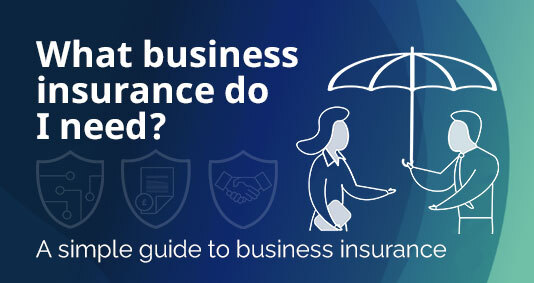
What business insurance do I need?
Getting the right cover to protect your business may seem daunting, but it needn’t be. We’ve put together this simple guide to business insurance, with the help of our partner Superscript, to get you started.

Getting the right cover to protect your business may seem daunting, but it needn’t be. We’ve put together this simple guide to business insurance, with the help of our partner Superscript, to get you started.
All businesses face the very real risk of an accident or unintentional error, which could lead to a legal claim against them.
The nature of potential claims will vary from business to business depending on things like the industry they operate in and how the business is set-up. In most cases, however, claims will likely arise from incidents involving contractual issues, injury, theft or property damage.
Knowing which insurance products your business requires may be confusing, but getting the right combination of covers to protect your business is likely simpler than you think. We’ve enlisted the help of our partner Superscript*, to bring you this simple guide to the different types of business insurance.
Is business insurance mandatory?
First off, you’ll want to answer the question “do I need insurance?”.
The only type of business insurance that’s required by law in the UK is employers’ liability insurance, a requirement for most businesses that have employees – whether full-time, part-time, temporary, or unpaid.
“Although most covers are not required by law in the UK, many businesses choose to protect themselves with business insurance. Having adequate cover provides businesses with the financial tools and professional support should they need to make a claim, or have one made against them.”
If you’re a member of a professional organisation or trade body, you may find that your membership requires you to have certain covers.
What are the types of business insurance?
There are many different types of insurance available to businesses, some provide more general coverage whilst other are developed to protect against very specific risks.
“Business insurance is an umbrella term which covers a number of different insurance products designed to protect your business against legal and compensation costs arising from a range of risks.”
The combination of covers you choose to make up your business insurance will depend on a number of factors, and should take into account the specific risks your business is likely to face.
We’ve outlined some covers that are relevant for a wide range of businesses, and what they are for:
Public liability insurance
Public liability insurance is a popular cover for businesses across most industries. It covers legal and compensation costs if a member of the public – in this context, anyone who isn’t your employee – is injured, or their property damaged, due to your businesses negligence.
Employers’ liability insurance
Employers’ liability insurance is a legal requirement for most businesses that employ people in the UK, whether this includes full-time and part-time employees, temporary workers, subcontractors or interns. It’s fairly similar to public liability insurance in terms of what is covered – but concerns employees rather than members of the public.
So, this means legal and compensation costs associated with accidental injury to your employees during the course of them carrying out the actions the business asks of them.
It’s worth remembering that if you employ people and don’t have employers’ liability insurance where legally required, the Health and Safety Executive could issue a fine of up to £2,500 for each day you aren’t covered.
Professional Indemnity Insurance
Professional indemnity insurance Professional indemnity insurance provides legal and compensation cover for businesses that offer professional services, including advice and consultancy. It’s often applicable to companies that work contractually and includes claims like breaches of contract and acts of errors or omissions.
For example, if you were a software developer and the app you created is found to be flawed, causing interruption to the client’s business, professional indemnity insurance may cover legal and compensation costs in relation to this.
Directors and Officers’ Insurance
If your directors or management team have legal or regulatory responsibilities to employees, the public, regulators, investors or other directors, then Directors’ and Officers’ insurance (also known as D&O and management liability cover) could be important. If you’re looking to raise funds from investors, it may even be an essential cover as often investors may require a level of D&O cover before investing in your business.
It offers three kinds of protection:
1. Covers directors and officers for fines, penalties and legal expenses.
2. Reimbursement to the company if it is required to pay fines, penalties or legal expenses on behalf of the director(s).
3. The company itself, if it’s named in the lawsuit.
Cyber Insurance
Cyber insurance Cyber insurance offers protection for risks concerning your data and computer systems.
Any businesses working with personally identifiable information (PII), including payment card information (PCI) or medical records (PHI) should consider cyber insurance. If you’re still unsure of which business insurance covers you require, our partner Superscript has a useful business insurance guide to help you determine which products you need.
We're always working to support our Credit Passport community by bringing the best solutions to safeguard businesses, build resilience and reduce business risk overall.Remember to sign in regularly and check your Credit Passport offers page to see matched offers, tailored to your business.
*Enro Ltd t/a Superscript is authorised and regulated by the Financial Conduct Authority. FRN 656459.